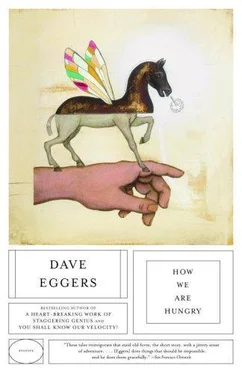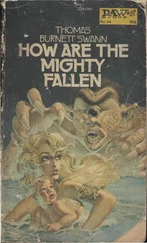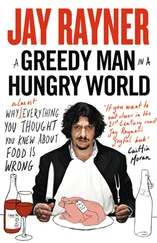Dave Eggers - How We Are Hungry
Здесь есть возможность читать онлайн «Dave Eggers - How We Are Hungry» весь текст электронной книги совершенно бесплатно (целиком полную версию без сокращений). В некоторых случаях можно слушать аудио, скачать через торрент в формате fb2 и присутствует краткое содержание. Год выпуска: 2005, Издательство: Vintage Canada, Жанр: Современная проза, на английском языке. Описание произведения, (предисловие) а так же отзывы посетителей доступны на портале библиотеки ЛибКат.
- Название:How We Are Hungry
- Автор:
- Издательство:Vintage Canada
- Жанр:
- Год:2005
- ISBN:нет данных
- Рейтинг книги:3 / 5. Голосов: 1
-
Избранное:Добавить в избранное
- Отзывы:
-
Ваша оценка:
- 60
- 1
- 2
- 3
- 4
- 5
How We Are Hungry: краткое содержание, описание и аннотация
Предлагаем к чтению аннотацию, описание, краткое содержание или предисловие (зависит от того, что написал сам автор книги «How We Are Hungry»). Если вы не нашли необходимую информацию о книге — напишите в комментариях, мы постараемся отыскать её.
A Heartbreaking Work of Staggering Genius
How We Are Hungry — читать онлайн бесплатно полную книгу (весь текст) целиком
Ниже представлен текст книги, разбитый по страницам. Система сохранения места последней прочитанной страницы, позволяет с удобством читать онлайн бесплатно книгу «How We Are Hungry», без необходимости каждый раз заново искать на чём Вы остановились. Поставьте закладку, и сможете в любой момент перейти на страницу, на которой закончили чтение.
Интервал:
Закладка:
But she’d gotten up. A good thing, a bad thing — the rest of the day would be an anticlimax. She’d have two or three more good chances at most, no matter how long they spent out here. She paddled through the foam and into the calm again, the sun drying her back almost instantly. Hand was straddling, his feet kicking the water, waiting for her.
This story is equally or more about surfing. People are no more interesting than waves and mountains.
In the afternoon, on the hard beach, with the wind snaking at them, hissing and sending sand into their sandwiches, Pilar and Hand squinted into the sun to see the water. They’d been in the ocean all day and now were watching it like actors would a play going on without them. The ocean didn’t need them.
Hand started clapping.
“I’m gonna clap every two minutes for the rest of the day,” he said.
There was a man out in the surf, wearing a cowboy hat.
“What do you do for that company again?” Pilar asked.
“I consult. I brainstorm. They like my brain.”
“But why here again?”
“My Spanish. And I volunteered. Down here money goes a long way. We get paid American wages but the costs here are half of what they’d be anywhere else.”
“Okay, but why Intel here at all, and not Korea or something?”
“We are in Korea. A big setup there.”
“Did you just say ‘we’?”
“No.”
“You did!”
The cowboy surfer was riding a perfect wave, hooting.
Hand had forgotten to clap. Pilar debated whether she should note this, knowing that she might just be bringing on more clapping.
“You forgot to clap,” she said.
“Listen. I have no problem with them as a company. They make chips. Chips are good. They’re in Granada because the workforce is educated, in the city at least, and they’re good workers. The infrastructure’s good, airport’s good, roads work, communications are fair, banks are sound, inflation’s fine, conveniences are decent, at least in Granada. And because here Intel avoids the unions on the floor and in trucking, all that. A lot of companies are leaving Puerto Rico, for one because the union activity is getting big down there. Same workforce, basically, as here, but no one sets up in this part of the world to get mixed up with unions.”
Pilar couldn’t decide if she found this interesting.
Hand, remembering himself, clapped for a full minute.
The horses were outside again, but were loitering down the road, in front of the bucket-blue house with the German woman, no relation to Hans from the hotel, watering her rock garden. One black horse was scratching at the road, nodding, as if counting.
“Looking for water,” Hand said.
Pilar went back to their room and filled a bowl with water. She came back; Hand’s face was skeptical. She walked toward the horse. It backed away and trotted up the hill. She held the water at stomach level, dejected.
Hand walked over to comfort her. But when his arms were supposed to wrap around her shoulders, he knocked the bowl from below, overturning it deliberately, soaking her shirt.
“Oops,” he said.
She slapped him hard across the mouth and the crisp flat sound of it made her laugh in one great burst.
There were animals everywhere. Underfoot there was always something moving — lizards, crickets, mice. There were iguanas. They could see them scurrying through woodpiles and through the forest. In the thin trees below their hotel they saw an iguana being chased by a yellow truck plowing away the underbrush.
The woman at the mercado had dirty blond hair, like margarine full of crumbs. Pilar and Hand bought ice cream from a freezer in the market. They tore the thin shiny plastic and ate the chocolate coating first, then the white cold ice cream. The sun made it soft.
At night they jogged through the alley behind the neighboring hotel, El Jardín del Edén, and down the dark dirt road to where the loosely strung Christmas lights smiled between columns, and techno taunted from speakers hidden in the armpits of trees. Most of the restaurants were still open, their attached bars ill attended. At the end of the road, past the pay phones and the surfers waiting patiently in line next to the local women, toddlers at their feet, they stopped into the Earth Bar, its half-heart-half-globe logo hung low over the open doorway.
Inside, people holding drinks. Shirtless thin tan surfers and white men, young, with black dreads, were barefoot or wore sandals, always with woven bracelets, beaded necklaces. The women were more varied. Plenty of the surf-girl sort but also backpackers of the Scandinavian breed — white-blond hair and bikini tops, plastic digital watches, reckless sunburns.
Pilar and Hand stood hip to hip by the bumper-pool table and drank very cold Imperials. The first two went quick— they realized how hot it was and how thirsty they were. They took their third bottles onto the deck, facing the black ocean. The darkness was close and concrete. They talked about the babies their friends were having, about Pete and April and their triplets. The last time Hand had seen April and Pete, they’d left the kids with the fifteen-year-old babysitter and stayed out until 3 a.m., refusing to let go of the night. They’d come home to find the babysitter asleep in their closet, their shoes piled up on the side. One of the babies had a bruise on his back the size of a wallet.
“In the closet?” Pilar said, and Hand didn’t say anything, or maybe he hadn’t heard. The story was missing many details and it made Pilar angry. But the music was suddenly loud and they didn’t say anything for a full minute. A dog ran in circles on the beach, chased by a smaller dog.
Hand pulled Pilar into his body and held her.
“It’s good that you came,” he said. She murmured her agreement. He kissed the top of her head.
In front of their hotel room there was an anteater.
“It’s not an anteater,” Hand said, crouching down. “It’s a sloth.”
“Sloths don’t have noses like that,” Pilar said, “long noses like that.”
It wasn’t moving, but from its side they could see it breathing, the rise and fall of its coarse fur.
“They sometimes do,” Hand said. “Down here they do. Look at his toes — they’re three-toed, like—”
“You don’t know what you’re talking about.”
Hand opened his mouth then closed it.
“Maybe it is an anteater,” he said.
It was bleeding. From its long snout there was a viscous substance that connected to the tile hallway, a stream of blood and mucus.
Pilar brought a saucer of milk. The animal made no movement toward it.
“It’s dying, isn’t it?” she asked.
“I don’t know. It doesn’t look hurt anywhere. Just the blood coming out the snout.”
They decided to leave the animal outside. There was no animal hospital in Alta, and there was nothing they could do for it inside.
“But how the hell did it get here?” Hand asked. “It can barely move. How’d it climb all these stairs? It must have started weeks ago. And why’d it stop at our door? This is too strange. There has to be a reason. We have to bring him inside.”
So they brought him inside. Hand did it.
“Like lifting a very fat cat,” he said.
Now the anteater was lying under a chair near the door. Pilar put the saucer of milk near it again, and added another saucer of water. The animal looked dead.
“If it dies tonight, it’ll smell,” Pilar said.
“It won’t die,” Hand said.
Hand sat on her bed and Pilar stood before him. For a moment, Hand continued to watch the anteater. Then he looked up, grabbed her shorts from the front and pulled her toward him. She sat on his lap and leaned into him, but when she wanted to put her mouth all over his, he spoke.
Читать дальшеИнтервал:
Закладка:
Похожие книги на «How We Are Hungry»
Представляем Вашему вниманию похожие книги на «How We Are Hungry» списком для выбора. Мы отобрали схожую по названию и смыслу литературу в надежде предоставить читателям больше вариантов отыскать новые, интересные, ещё непрочитанные произведения.
Обсуждение, отзывы о книге «How We Are Hungry» и просто собственные мнения читателей. Оставьте ваши комментарии, напишите, что Вы думаете о произведении, его смысле или главных героях. Укажите что конкретно понравилось, а что нет, и почему Вы так считаете.












